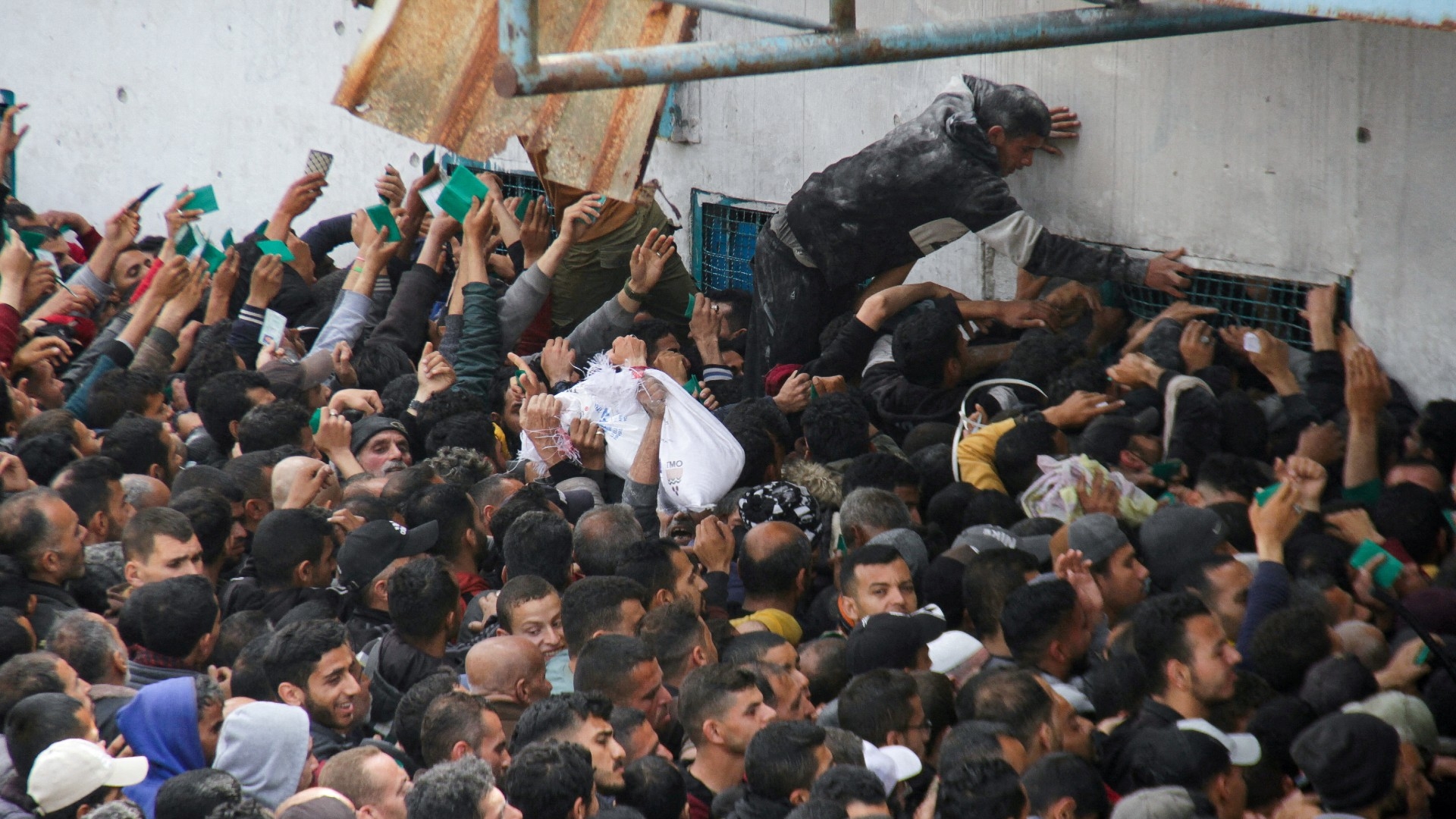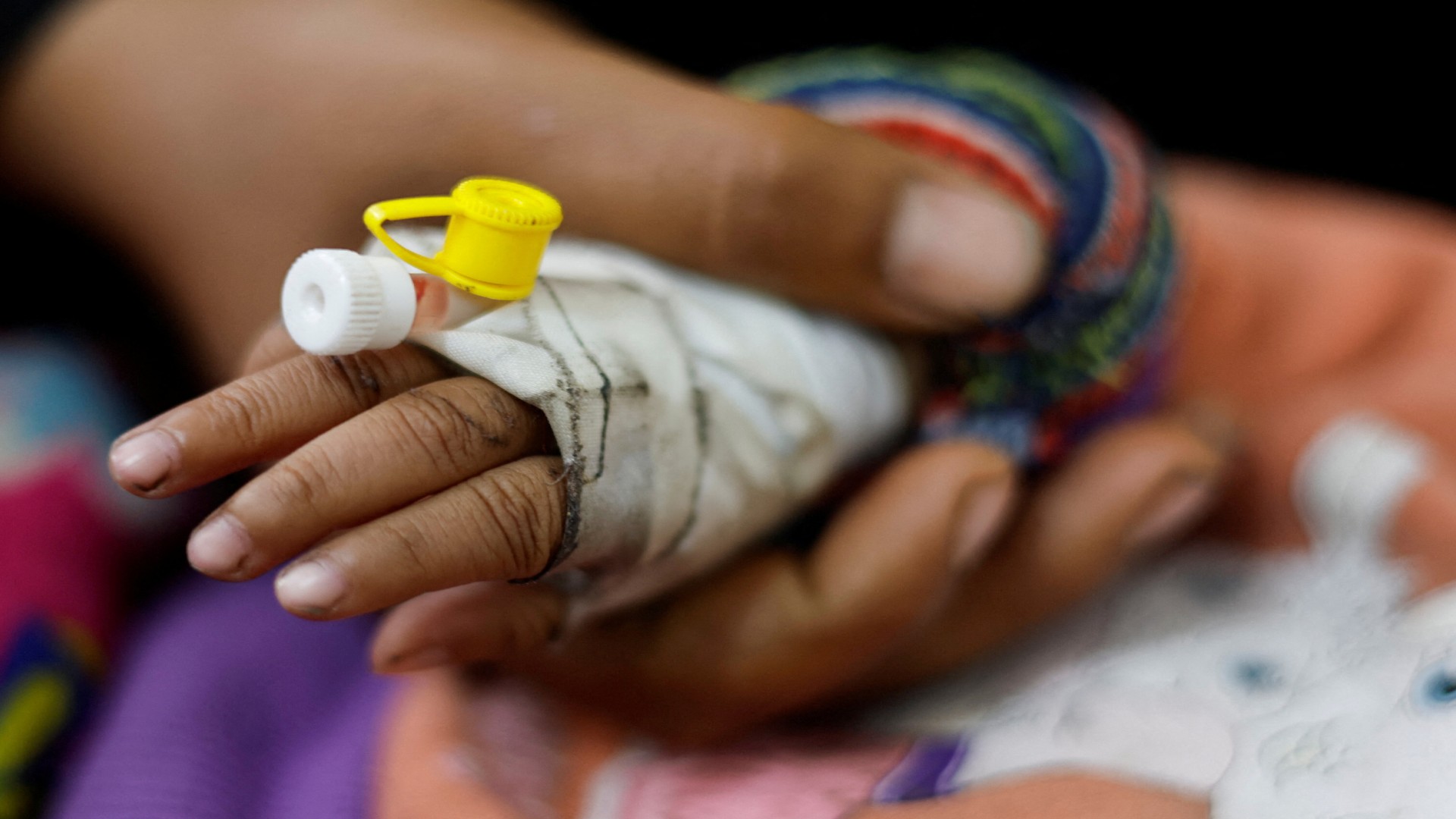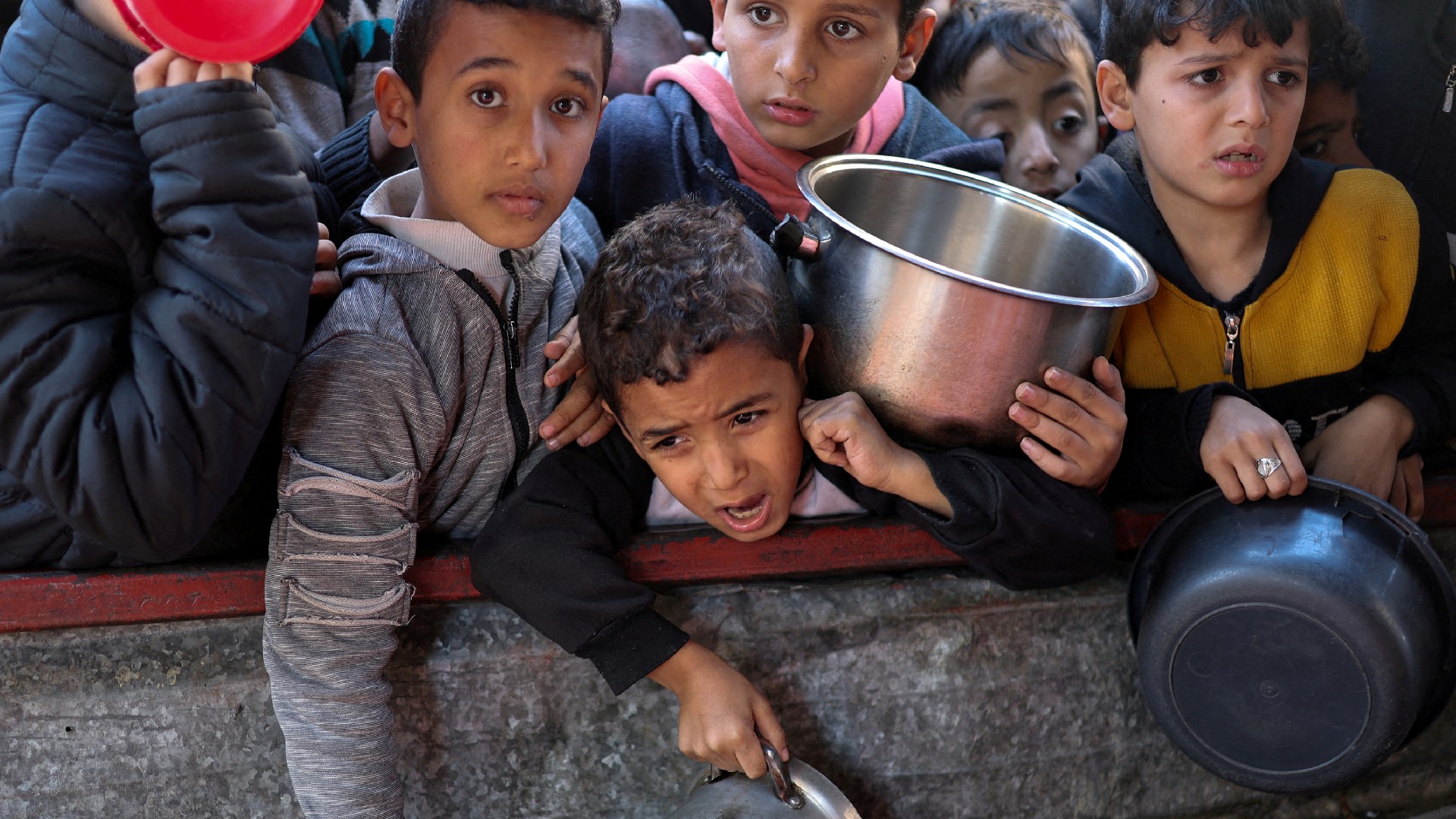What is famine and why did the UN declare it imminent in Gaza?

A coalition of aid groups has warned that famine is imminent in Gaza, in what Unrwa - the UN’s agency for Palestinian refugees - has described as "man-made starvation".
The latest food security report by a UN-backed initiative on Monday found that the entire population of Gaza, estimated to be around 2.3 million, is enduring "acute" food insecurity, while half the population suffers from a greater level of food insecurity classified as "catastrophic".
The Integrated Food Security Phase Classification (IPC), a multi-partner initiative, concluded that the hunger level in Gaza is the "highest share of people facing high levels of acute food insecurity that the IPC initiative has ever classified for any given area or country".
The UN and other aid agencies have warned that Gaza is on the brink of famine due to Israel's prevention of the entry of life-saving aid through the enclave's land crossings.
The report came as Phillipe Lazzarini, the head of Unrwa, was refused entry to Gaza.
Stay informed with MEE's newsletters
Sign up to get the latest alerts, insights and analysis, starting with Turkey Unpacked
"This man-made starvation under our watch is a stain on our collective humanity. Too much time was wasted, all land crossings must open now. Famine can be averted with political will," he said on X.
The EU's foreign policy chief, Josep Borrell, said on Monday that Israel was provoking starvation and using starvation as a weapon of war, adding that the humanitarian crisis is "man-made".
Oxfam meanwhile said that Israeli restrictions on border crossings in and out of the strip were preventing "a warehouse full of international aid" from entering.
What is famine?
Famine refers to a population enduring widespread malnutrition and hunger-related deaths due to a lack of access to food.
According to the World Food Programme (WFP), famine, a technical term, is declared when the following three conditions are met in a particular geographic area:
- At least 20 percent of the population is facing extreme levels of hunger;
- 30 percent of children in the same area are "wasted," or too thin for their height; and
- The death rate has doubled from the average, surpassing two deaths per 10,000 daily for adults and four deaths per 10,000 daily for children.
"You can clearly see that in a way, famine is an admission of collective failure," WFP chief economist Arif Husain said. "We should act way before the famine, so people don’t starve, children are not wasted and people don’t die of hunger-related causes."
While in the 1970s and 80s, famine was largely driven by drought, today conflict is the major driver of hunger.
How is famine assessed?
The Integrated Security Phase classification is an initiative used to track acute hunger, developed during the crisis in Somalia in 2004 by the UN Food and Agriculture Organisation (FAO).
It is a tool used by governments, UN agencies and non-government organisations not only to measure the scale of acute malnutrition and food insecurity, but to raise alarms about potential famine situations.
The IPC does not gather data, it relies instead on humanitarian partners on the ground to produce information regarding food security, nutrition, mortality and calorie intake.
The IPC then analyses this data and evaluates it against a five-phase metric, with phase three constituting a food crisis, four an emergency, and five a "catastrophe" or famine.
In response to an IPC classification, NGOs will ramp up humanitarian assistance and food aid to prevent people at crisis or emergency level from reaching level five.
"What we try to do is to get to the people, so we never have to deal with the famine-like situation, or IPC phase five," Husain said.
"We work very, very hard at the crisis level and definitely at the emergency level to save people’s lives so that they don’t get to IPC phase five, which is classified as a famine."
‘Imminent famine’ in Gaza
The latest IPC report projects that in northern Gaza, the level of acute malnutrition is expected to surpass the famine threshold of 30 percent "anytime between March and May 2024".
The report said that 88 percent of people in Gaza are facing food insecurity levels four or five.
Nutrition screenings conducted by Unicef, the United Nations Children's Fund, in the north in February revealed that 4.5 percent of the children in shelters and health centres are suffering from "extreme wasting," the most deadly form of malnutrition that exposes children to other diseases.
Starvation has driven Palestinians in Gaza to eat grass, weeds, and mix animal fodder and bird feed in flour to make their bread.
These extreme measures have detrimental effects on health and can lead to serious medical issues, especially in young children.
"We have stopped differentiating between donkey food and human food. We are eating anything," Mazen Terk, 30, told Middle East Eye in January.
"All of my children have stomach pains and diarrhoea, because of the food, water, and rubbish in the streets."
The IPC named the key drivers of food insecurity in the besieged enclave as the intensity of the Israeli onslaught on the strip, and extreme limitations on humanitarian access via Israeli-controlled border crossings.
Since its last report in December, the initiative said that the number of people facing catastrophic levels of hunger had doubled, as "the conditions necessary to prevent famine have not been met".
Middle East Eye delivers independent and unrivalled coverage and analysis of the Middle East, North Africa and beyond. To learn more about republishing this content and the associated fees, please fill out this form. More about MEE can be found here.






